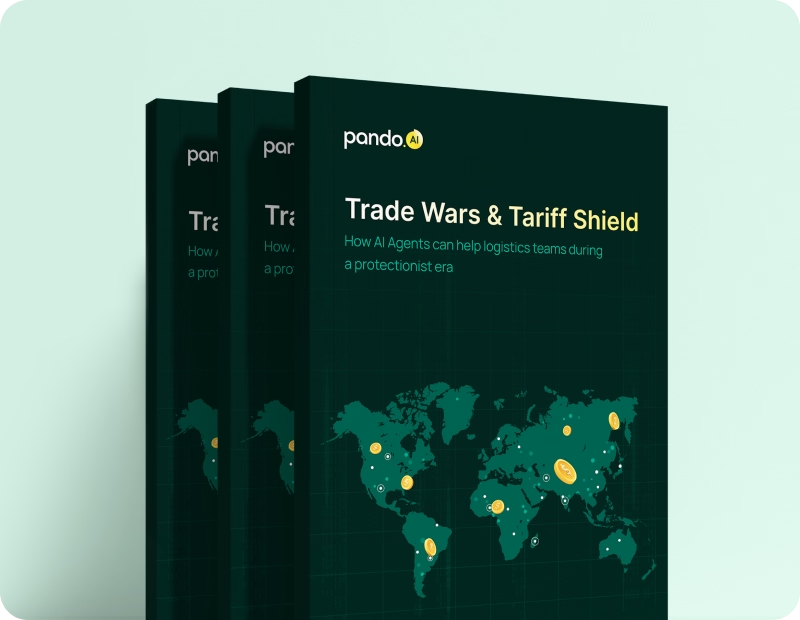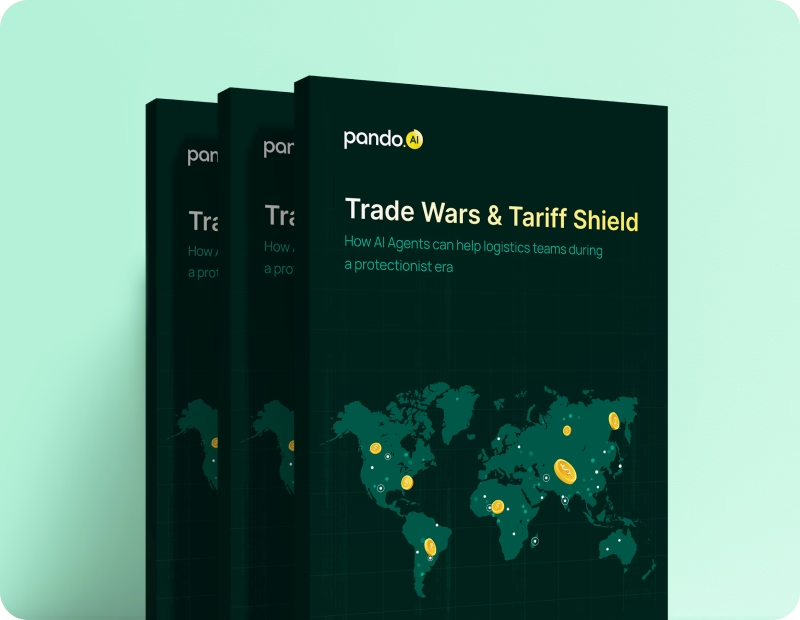-
Products Products
- Industry
- Initiatives
- Resources
- Company
- Book a demo
-
Products Products
- Industry
- Initiatives
- Resources
- Company
- Book a demo
Freight forwarding made simple
Learn the essentials of freight forwarding and how to choose the right partners to simplify global logistics, cut costs, and boost supply chain efficiency.
Published on October 3, 2024 • 5 mins read
Rohit Lakshman

Learn the essentials of freight forwarding and how to choose the right partners to simplify global logistics, cut costs, and boost supply chain efficiency.
The global marketplace has transformed significantly; businesses are no longer confined by borders. This has created a pressing need for seamless transportation of goods locally and internationally—that too, in time and within budget.
International shipping entails coordination with multiple stakeholders, compliance with customs regulations, and efficient carrier selection, among other tasks. Each of these tasks requires careful planning and expert insights. A dedicated partner such as Pando.ai can help businesses ensure seamless freight operations. Along with enabling seamless collaboration with freight forwarders its AI-driven insights and recommendations, it can help you mitigate risks and effectively prioritize eco-friendly practices.
What is freight forwarding?
Freight forwarding is a service that enables businesses to transport goods from one location to another. These service providers, also called freight forwarders, plan and optimize the entire shipping process, navigate stringent compliance regulations, handle documentation, and manage customs clearance.
.png?width=1440&height=1569&name=Infographic%20(1).png)
What are different types of freight forwarding services?
-
Air freight services: Freight forwarders handle a large volume of shipments via air cargo. Air freight service is the fastest method of transporting goods and is usually preferred for high-value or time-sensitive cargo.
-
Sea freight services: Sea freight is often the most cost-effective solution for international shipping, especially for bulk cargo. Freight forwarders coordinate with shipping lines to book containers, manage port-to-port shipping, and handle customs.
-
Road freight services: Road freight service providers help goods reach destinations that may not be accessible by air or sea. Road freight forwarders work with trucking companies to manage shipments and comply with local transport regulations.
-
Multimodal solutions: This entails a combination of multiple modes of transport such as air, sea, and road to optimize cost, speed, and efficiency.
What are the Benefits of Using Freight Forwarders?
Partnering with a freight forwarder offers businesses numerous value-added services that surpass simple logistics coordination. Let’s explore some of these in detail.
-
Managing complexity
The supply chain becomes increasingly complex when businesses scale beyond borders. Freight forwarders act as a central point of contact to coordinate with multiple carriers and service providers across the supply chain. They recommend the most optimal mode of transport while balancing speed, cost, and reliability to meet client needs.
-
Compliance and regulations
Navigating customs regulations is one of the most challenging tasks for businesses. Freight forwarders compile and submit mandatory documents such as invoices, packing lists, licenses, and origin certificates. Their experience and knowledge regarding import and export laws, tariffs, and documentation enable them to manage customs clearance efficiently. As a result, freight forwarders help businesses avoid fines, delays, or potential legal issues that may arise from non-compliance with customs regulations.
-
Cost and time savings
Freight forwarders maintain strong relationships across a vast network of carriers and service providers, thus significantly saving costs and time for businesses.
Best practices in leveraging freight forwarders
According to a World Bank report, the global freight forwarding market is estimated to surpass USD 2.4 trillion by 2027. This indicates a significant increase in demand for freight forwarding services among businesses.
Leveraging the right tools and technologies can help businesses maximize the benefits of their partnership with freight forwarders. The following key factors can help businesses assess potential partners effectively:
1. Evaluate based on cost and SLAs
Start by clearly defining what you would need from a freight forwarder. Make a note of specific requirements such as preferred shipping routes or handling needs. Go beyond just comparing costs and look at the Service Level Agreements (SLAs) they provide. Prioritize the ones that offer on-time delivery guarantees, proactive communication, and dispute resolution protocols. Additionally, seek freight forwarders with proven experience in your industry. A track record of managing similar shipments would be ideal.
2. Effective collaboration
The freight forwarder is an extension of your logistics team. Encourage open communication and share data and insights. Work together as a team to overcome challenges and capitalize on opportunities. Furthermore, automating tasks can help you streamline logistics operations and increase efficiency. Pando.ai’s carrier tendering capabilities enable you and your carriers to collaborate seamlessly on a single platform for all tendering activities.
3. Risk management
Risk management is a vital part of working with freight forwarders. The best practice is to use scenario planning to anticipate possible disruptions. This can help you navigate through port closures, geopolitical instability, or natural disasters. Another strategy is to implement Shipping on Board (SOB) allocation. Distribute your cargo across different carriers or routes to avoid putting all your eggs in one basket. Freight forwarders with extensive networks can help you allocate shipments efficiently.
4. Incentivize for sustainability
Demand for the adoption of sustainable practices has been rising significantly across the globe. Therefore, it would be smart on your part to incentivize your freight forwarder to adopt greener practices. Collaborate on selecting eco-friendly shipping options. Choose fuel-efficient vehicles, operate on low-emission routes, and offer favorable terms for sustainable practices to encourage freight forwarders to prioritize greener logistics.
5. Freight invoice audit and payment
Review invoices regularly to spot discrepancies such as double charges for services or incorrect weight and volume calculations. Engaging in regular audits ensures you're only paying for services that were agreed upon. Pando.ai’s AI-powered solutions allow you to manage your freight contracts and other charges seamlessly. Digitization of all the data further helps you to achieve 100% audit accuracy. According to Jacob from Accuride, “This has generated significant cost savings as we can now reject invoices where we were billed incorrectly and request the provider to send the revised invoice with the correct charges.”
Elevating logistics with expert freight forwarding
Freight forwarding plays a key role in the movement of freight across international borders. It helps manage complex logistics coordination, optimize cost, handle documentation, and ensure compliance. In addition to managing logistics, freight forwarders play a critical role in mitigating risks such as delays or disruptions. Businesses can also convert the collaboration with freight forwarders into opportunities for prioritizing eco-friendly practices.
Thus, freight forwarders enable businesses to expand their global presence while maintaining control over their supply chains. Digital solutions offered by Pando.ai can help businesses optimize freight forwarding partnerships and strengthen their supply chain. Book a demo today and experience the difference firsthand.
Subscribe to Pando blog and Crossroads newsletter now!
Stay up to date with the latest logistics, transportation, and supply chain tips and news.
Subscribe Here!

Related blogs
Navigating the complex world of freight forwarding: A comprehensive guide

Freight management system: Transforming logistics for modern businesses











